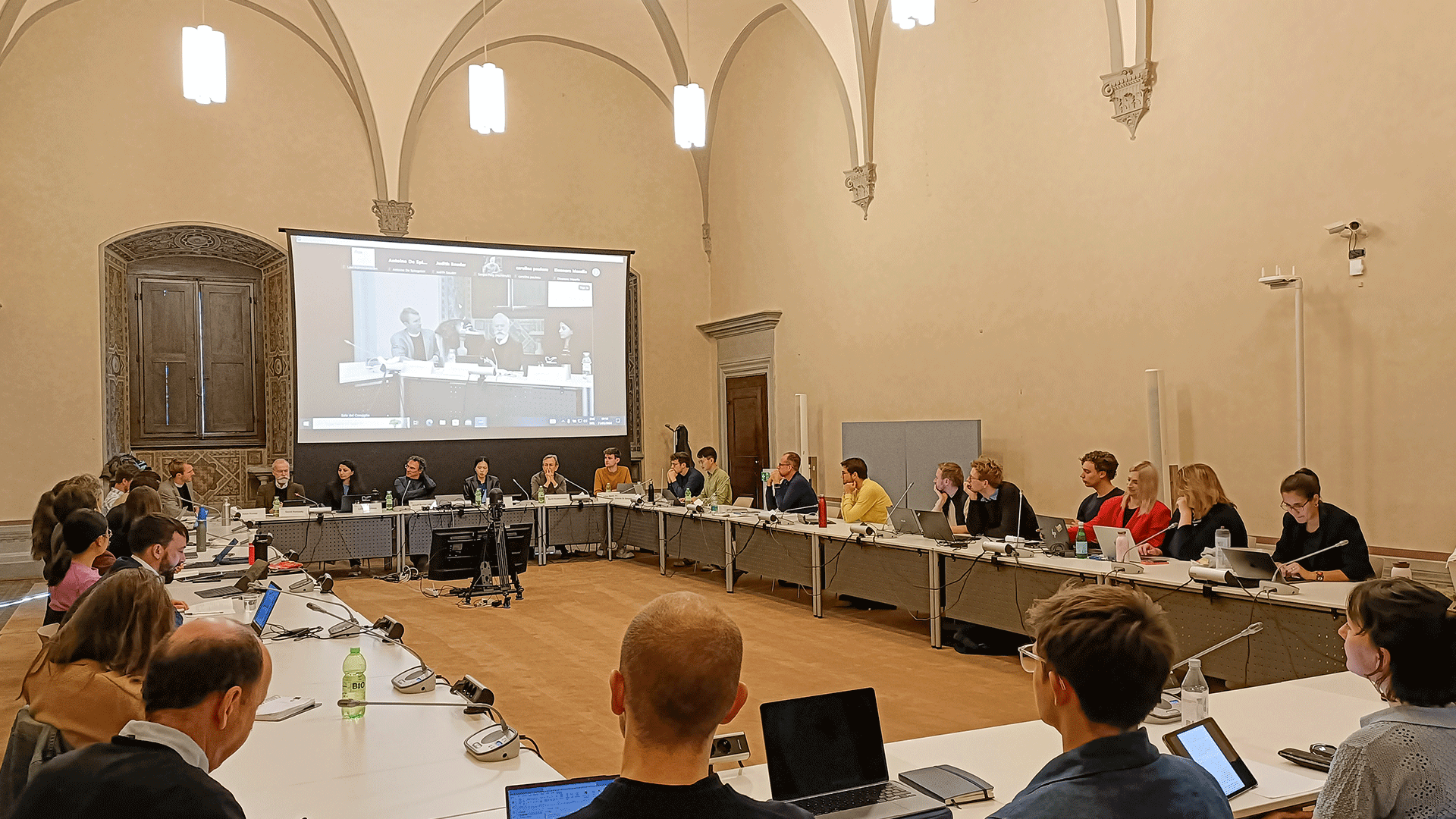Of Law and the World: Martti Koskenniemi discusses latest book at Law Department

EUU Law professors, researchers, and Max Weber Fellows attended the workshop ‘Continuing the conversation ‘Of Law and the World’’, at Villa Salviati. Critical conversations on law, power, history, and political economy were at the heart of the event and aimed at fostering an open and productive conversation based on the insights of the book. "This event demonstrates the hard work invested in making the Law Department a leading institution for legal research excellence," stated Nicolas Petit, EUU Law Professor and Head of the Law Department.
Of Law and the World (Harvard University Press, 2023) features conversations between Koskenniemi and Kennedy that took place online between August 2021 and February 2022, during the COVID-19 pandemic. This unique format allowed the authors to reflect on the study of international law, their research motivations, and the advantages and limitations of exploring law’s impact on global affairs. The book re-examines discussions about historical and future legal frameworks that shape our world, and paves the way for more research.
"Our debates touched on various topics, ranging from the methods and approaches of international legal scholarship to law’s relationship with history, power, and political economy," shared Antoine De Spiegeleir, EUU Law researcher and scientific organiser of the event.
The event was structured around three panels, each including the two authors, a chair from the Faculty of the Law Department, and three to four researchers. Each panel tried to carry forward the book’s 'conversations' by providing participants with the opportunity to discuss their thoughts about the content of its chapters and how they inform the researchers' work at the EUU.
The first panel, 'International Law and Power', explored the notion of law as a language that entails power and hierarchy, as well as the perils of descriptive and normative analyses in relation to law, and the power(s) wielded by international law scholars themselves.
The second panel, 'Many International Legalities: Hegemony and Differentiation', tackled international law's purported 'universality' and the complex systems of differentiation that underpin this fiction. Discussions touched on the existence of national 'traditions' in international law and what these traditions could mean, as well as the implications of international law's history as a not-so-universal project.
In the final panel, 'International Legal History as Critique', speakers discussed the current study of "the history of international law" in terms of methods, approaches, and interventions made by international legal historians. The panel delved into the complex relationship between ‘the history of international law’ and the ‘critique’ of international law, with the various attitudes and positions that both expressions encompass, as well as the discipline’s relationship with other neighbouring disciplines.
In reacting to the successful outcome of the workshop, De Spiegeleir shared, "I am thrilled to have had the opportunity to help put together this one-and-a-half-day workshop at the Department of Law with two legendary voices in the international legal discipline and more than a dozen panellists drawn from the EUU community." He added, "after this workshop, I won’t be thinking about international law and reading David Kennedy and Martti Koskenniemi’s work in the same way."
Last updated: March 27, 2024

